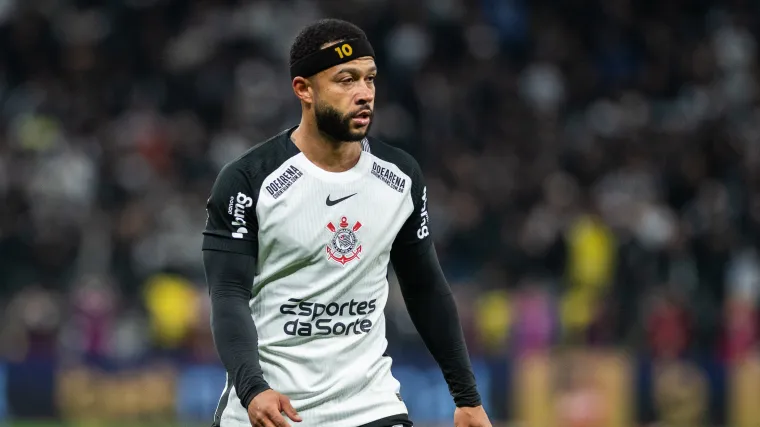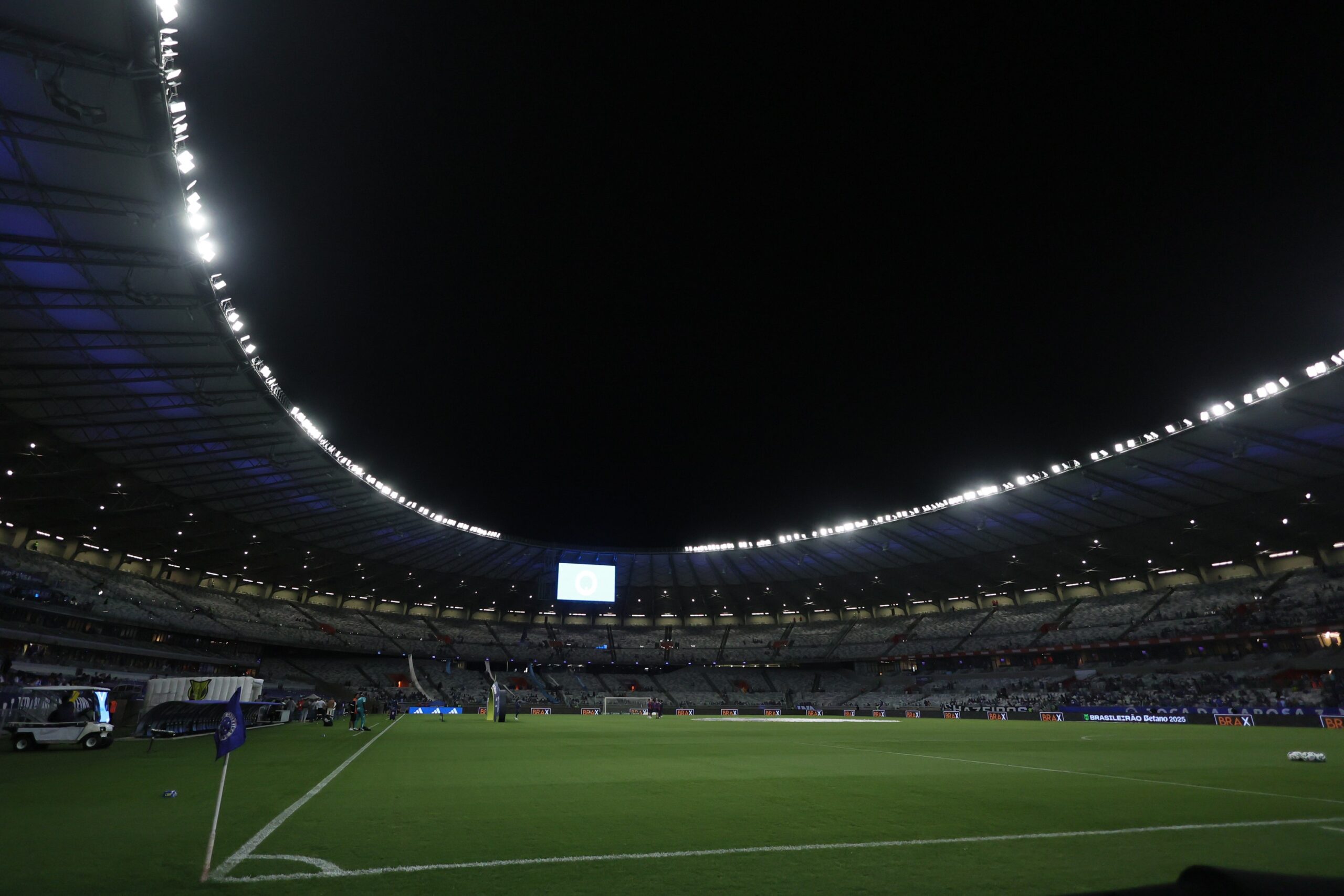The Anatomy of a Strategic Farce
On the surface, it was just another fixture in the long, grueling marathon of the Campeonato Brasileiro Série A. Cruzeiro versus Corinthians at the Mineirão. A classic matchup, steeped in history, featuring two of Brazil’s giants. One club, Cruzeiro, clawing its way back from the abyss of relegation and financial ruin. The other, Corinthians, a São Paulo behemoth with a fanbase that constitutes a veritable nation, perpetually demanding glory. The stakes were, as they always are, deceptively high. A win here, a loss there, and the complex calculus of qualification for the Copa Libertadores or the less glamorous Sudamericana shifts dramatically. It’s the kind of domestic football narrative that plays out across the globe. Standard procedure.
Until it wasn’t.
Somewhere in the pre-match digital churn, a piece of information surfaced that was so profoundly and demonstrably false it transcended mere error and entered the realm of strategic symptomatology. The report: Memphis Depay, the Dutch international forward currently on the books at Atlético Madrid, would be missing the match for Corinthians due to his sixth injury of the year. This is not a typo. This is not a misunderstanding. This is a complete fabrication from an alternate reality, a phantom transfer that never was, presented as a routine squad update. Depay has, of course, never played for Corinthians. He has no connection to the club, to São Paulo, or to Brazilian domestic football whatsoever. It’s the equivalent of reporting that Tom Brady was out for the second half of a Manchester United game due to a sprained ankle.
It’s almost beautiful in its absurdity.
A cold, detached analysis doesn’t permit laughter. It demands interrogation. How does a breakdown of this magnitude occur? The simplest explanation is the most likely and also the most damning: the unthinking, algorithmic churn of modern sports media, possibly a poorly programmed AI or a woefully underpaid and overworked content aggregator scraping data and mashing keywords together. The name ‘Memphis Depay’ was likely trending due to an actual injury at his actual club in Spain, and the algorithm, in its infinite wisdom (or stupidity), simply fused this information with the keywords ‘Corinthians’, ‘injury’, and ‘Cruzeiro match’. It’s a ghost in the machine, a digital artifact of a system designed for volume, not veracity.
But that’s too simple. It absolves the human element. This reveals a profound and unsettling truth about the current state of Brazilian football’s perception, both internally and externally. For a mistake this ludicrous to be published, it requires a complete absence of editorial oversight. It means no one who actually follows the sport laid eyes on it before it went live. It suggests a system where the production of ‘content’ about a major national fixture is outsourced to entities (human or machine) that have zero contextual understanding of the subject matter. The match itself, between two clubs with millions of passionate followers, was reduced to a set of keywords to be manipulated for clicks, its actual substance deemed irrelevant.
The Global Perception Deficit
This single, bizarre data point is a trailing indicator of a much larger strategic problem facing the entire Brazilian football ecosystem. For decades, the Brasileirão has operated on a self-contained logic, sustained by a massive, fervent domestic audience. It was a world of its own, rich with history, talent, and drama. But in the hyper-globalized, hyper-commercialized landscape of 21st-century football, that insularity is no longer a strength; it is a critical vulnerability. The league that produced Pelé, Zico, Ronaldo, and Ronaldinho now finds itself in a perpetual struggle for global relevance against the marketing and financial juggernaut of the European top five.
The league’s business model is, fundamentally, one of export. It is arguably the world’s most effective talent incubator. Players are developed, showcased for a couple of seasons, and then sold to Europe for massive fees that keep the clubs afloat (or, in many cases, just barely solvent). This creates a cycle where the league’s biggest stars are always ephemeral, their peaks enjoyed by audiences in Madrid, Barcelona, London, and Liverpool, not São Paulo or Rio de Janeiro. The product on the pitch, while often technically brilliant and wildly entertaining, is perceived by the global market as a developmental league—a stepping stone. It’s the NCAA basketball tournament to Europe’s NBA.
This perception has corrosive effects. It means international broadcast rights are a fraction of what the Premier League commands. It means global sponsors are harder to attract. And, as the Depay incident so perfectly illustrates, it means the quality and rigor of international media coverage can be appallingly low. Why invest in knowledgeable journalists and stringent fact-checking for a league that the wider world views as a farm system? The assumption is that the audience that matters (the non-Brazilian, English-speaking one) doesn’t know the difference and doesn’t care. They know the big European names, so inserting one into a Brazilian lineup is, from a crude SEO perspective, not a bug but a feature.
It’s a vicious cycle. The league is perceived as secondary, so it receives secondary-level coverage, which in turn reinforces its secondary status. Corinthians isn’t just playing against Cruzeiro; it’s playing against a global narrative that has already relegated it. The club, for all its domestic power and history (this is a team that won the Club World Cup against Chelsea, a fact conveniently forgotten by many), is reduced to a bit player in a story where a European star’s phantom injury is somehow the headline.
A Mandate for Strategic Reinvention
The Clubs: A Micro Reckoning
For the clubs involved, this incident should serve as a deeply uncomfortable wake-up call. For Corinthians, the implications are stark. A club of their stature, which prides itself on its massive and fiercely loyal following (the *Fiel*), should be insulated from such amateurish portrayals. The fact that their brand can be so carelessly handled in the digital space indicates a failure to control their own narrative on the international stage. Their digital strategy, their press relations, and their international branding must be re-evaluated. They are not merely a football team; they are a global content asset, and they must begin to manage themselves as such with a ruthless, corporate-style efficiency. They must demand a higher standard from media partners and aggressively correct misinformation, not because it’s a matter of pride, but because it’s a matter of brand equity.
Cruzeiro, now under the ownership of the legendary Ronaldo Nazário, is in the midst of a foundational rebuild. This moment should be instructive for them. As they work to restore the club’s financial health and competitive standing, they must simultaneously build a media and brand infrastructure that is resilient to this kind of decay. Ronaldo, more than anyone, understands the global football market. He knows that sporting success is only half the battle. The other half is fought in the arena of perception, media rights, and digital engagement. Building a robust, multi-lingual, and factually rigorous media presence isn’t a luxury; it’s a core component of a modern club’s survival kit. The goal isn’t just to win games, but to own the story of the club so completely that a phantom Depay transfer becomes an impossibility.
The League: A Macro Imperative
Zooming out to the league level, the CBF (Brazilian Football Confederation) and the league body face a strategic imperative. The current model is not sustainable if the goal is to compete, truly compete, with the European behemoths. A fundamental shift in mindset is required. The league must transition from being a talent exporter to a destination product. This is a monumental task, involving everything from financial fair play regulations and infrastructure investment to, crucially, a centralized and aggressively professionalized global media strategy.
The Brasileirão must build a media operation that rivals that of the Premier League or La Liga. This means high-quality, English-language broadcasts with world-class production values. It means a centralized, sophisticated digital media ecosystem that tells the league’s stories—its incredible rivalries, its vibrant fan cultures, its emerging stars—to a global audience in a compelling way. It means providing a firehose of accurate, real-time data and content to international media to make their jobs easier and disincentivize the kind of lazy, algorithmic content generation that led to the Depay farce.
The alternative is to accept the status quo. To remain a feeder league, a curiosity, a place where the details don’t matter and where European stars can be photoshopped into the lineup without anyone blinking. The match between Cruzeiro and Corinthians was decided on the pitch, as it should be. But the more significant battle, the one for the soul and future of Brazilian football, is being fought—and in moments like this, lost—in the chaotic, unforgiving landscape of the global information war.


